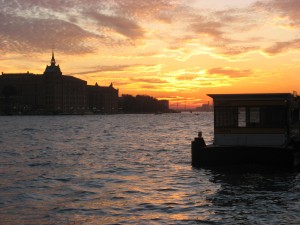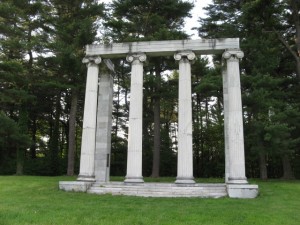I have a few brainstorming sessions slated for today at work on directions for a project I am working on and it made me pause for a second on what it means to be creative. I also just walked through James Geary’s TED Prezi Presentation on Mixing Mind and Metaphor and was inspired (hence me stealing all his quotes). And I realized that not only has my idea of creativity changed in different stages of my life, it changes drastically during the ebbs and flows of any single day.
[ted id=716]
Seeing how I owe a good deal of my professional existence to at least nominal creativity, I figure it might be a good post for the day. It is serving double duty as it will also serve to stimulate my creative impulses before brainstorming for the better part of the day. A whiteboard, a marker, a laptop, handouts, coffee, charged up people? That is professional bliss.
Historical Stages
What was creativity to me in my youth? For most of us, creativity in our school years was all about art. Something artistic. The endless awkward drivel of a melancholy dude running around Youngstown, Ohio, thinking there has to be something better than this. And I was right. And the writing helped, the poetry, the plays, the clumsy prose that I wanted to finish in one setting. It helped release those creative impulses, that fire in our belly, that racket in my head. It is like a furnace that has to be stoked. It still is.

So, what purpose did the writing serve at this stage? I saw it as a spiritual exercise, some higher calling, but I now realize that this was only the abstraction talking. I couldn’t see how this creativity would help me later down the road. It was too abstract a concept for an 18-year-old to grasp. How would all of this energy push me towards other things? How would this fire make me overcome any pedestrian fear of the unknown? It did, but I didn’t what was happening then. It just did.
Then university and my early professional life. Creativity was still art, still this writing, but then this sublime creativity started to enter my consciousness. It was incredibly understated, but it was palpable. A creativity directed towards professional efficiency, professional improvement, cultivation of the mind without this cathartic release of writing. Work became art. And the ego started to burn less bright.
I started to see some professional gains and my industry improved. I took pride in my work as a teacher, in my management role, in my efficiencies and bottom lines. I hungered for the eureka moment in my classes and that perfect sunset outside of them. All were fuel.
Currently, that is where I stand. This great satisfaction I take in lending creativity to work, towards endless collaboration. Towards taking a concept and running it through, making an idea an almost tangible thing. I write less personally (aside from this, just a little these days), but infinitely more professionally and it is generally creative, of the endless associations variety. I get to blog, tweet, capture images and video, circulate, connect, and network professionally. I find that social media and networking are creative organisms in and of themselves, just less a direct output of my ego.
Impulse
I am not sure I buy into the notion that people are born creative or not, although I believe there is a general predilection towards one or the other. I am not sure my upbringing spawned an artistic temperament, but it certainly didn’t discourage it. None of us played musical instruments and only my older sister seems to be a capable artist (she is an architect). We did read like crazy (and still do) and that proved to be fairly rich ground to build creative thought on.

I do believe the impulse to be creative will lead to creativity which will lead to a reorganization of your reality (which leads to greater creativity). We create something and that something creates us (in a way).
When the flower arranged arranges the flowers, he also arranges his mind and the mind of the person who looks at the flowers. -Zen saying.
Our participation in the process of engaging with someone invariably changes us. It can be fuel for creativity if you let it. It is just a matter of lining up your receptive mechanisms and removing fear (of the unknown). That fear will distort and pervert anything that could be fuel for creativity.
And language are the artifacts of creativity so nurture them well. Communicate, write, socialize, interact. Use these words and use them often as they discovery tools of the highest magnitude. They unlock pockets of possible existence; they provide me personally with a roadmap. I often don’t know what I am writing about until I write it.
Language is fossil poetry.-Ralph Waldo Emerson
So there you have it. Some thoughts for the day before a monster brainstorming session. What does creativity mean to you? It doesn’t have to be art, but it has to be done. So get to it.
